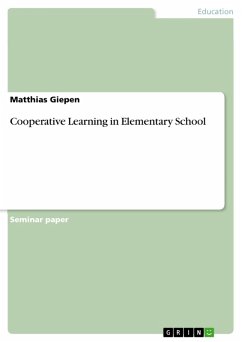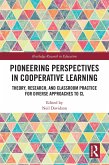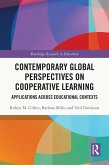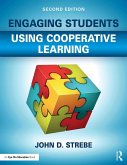Seminar paper from the year 2010 in the subject Pedagogy - School Pedagogics, grade: 2, University of Kassel, language: English, abstract: Abstract Nowadays, social skills become more and more important. Radical changes in numer-ous fields make the development of social skills more difficult. The development of social skills can be encouraged through forms of cooperative learning. The relevance of cooperative learning forms is elevated by the special advantages that their use within the EFL classroom offers. Cooperative learning greatly improves the classroom atmosphere and fosters the development of a child's personality especially during primary school. The limited fluency of primary school pupils seems to make it very difficult to implement some of the more complex cooperative learning methods. Teachers are often afraid of implementing cooperative learning forms in primary school (Putnam & Spenciner, 1993, p. 125). In this paper, reasons for the implementation of cooperative learning forms in primary school are given. In addition, cooperative learning methods are elaborated in terms of their usability in the EFL primary classroom.
Dieser Download kann aus rechtlichen Gründen nur mit Rechnungsadresse in A, B, BG, CY, CZ, D, DK, EW, E, FIN, F, GR, HR, H, IRL, I, LT, L, LR, M, NL, PL, P, R, S, SLO, SK ausgeliefert werden.









